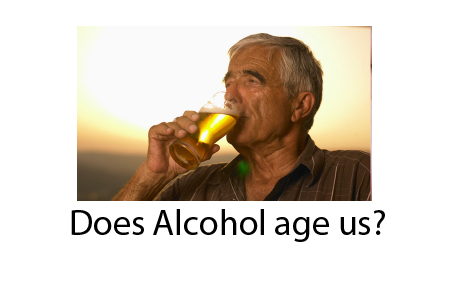
- Written:
- Author: Edward
- Posted in: dr ed park, Telomerase activation, toxins
- Tags: addictions, alcoholism, causation, confounding, Dr. Ed Park, ibogaine, statistical methods, telomeres
There was an article that hit the newswires suggesting that alcoholism is associated with shorter telomeres. Like the study I blogged about last week, which suggested women who were having sex had longer telomeres, this kind of case/control methodology has inherent problems related to confounding.
There are other studies linking alcohol consumption with shorter telomeres but let us try to find the common problems with making these causal associations. Women who are having sex are likely to be in a more functional relationship so there is little way to control for the other positive aspects that would be associated.
People who are drinking heavily may have many more problems that also cannot be controlled for with statistical methodology.
This is the problem that using a randomized controlled methodology attempts to correct over the deeply flawed case/control method, which cannot reliably define the unknown unknowns. Unfortunately, the double blinded placebo methodology is not a perfect technique but it attempts to prospectively test one variable and associate it with an outcome variable by hopefully randomly distributing the other potential confounding variables (or unknown unknowns) into both groups evenly.
To approach truth, we can try to make models based on science, bench research, case control, and randomized controlled trials, but in the end, intuition is also an important barometer of truth. The conclusions are only as good as the assumptions but any model is not capable of capturing the rich complexity of a system. If you are happy with a glass of wine, then I will venture to say this is fine for your telomeres. The proper study of man is man and you are the expert in what makes you happy.
If you are addicted to drinking, perhaps the improved procedural memory modeling of taking adaptogens while dreaming can help. To learn more about addictions and how sleep dysfunction is at the root of many celebrity deaths, watch this video I did on the subject:
Since addictions are largely adaptive learned behaviors constructed by the ego, perhaps the trend towards hallucinogens such as Ibogaine, which cause dissociation from ego, are very effective methods for some.


1 thought on “Alcoholism accelerates aging”
Here is a quick story regarding the premise you have just brought up about alcohol and aging: I returned to my home of origin in far West Texas not long ag
and started to encounter people I had known growing up. An impressive number of people remaining in the community are well into their 90’s and beyond 100. I can’t say I recall that many elders growing up but this number of people, in the 20’s and maybe 30’s or more is astounding. I have only anecdotal and observational data but nearly all of these people, men and women, don’t drink much, and in several cases when questioned, have not drunk alcohol at all and they have very strong ties to a church or local faith group. Just fodder for the theory about whether or not alcohol ages you.